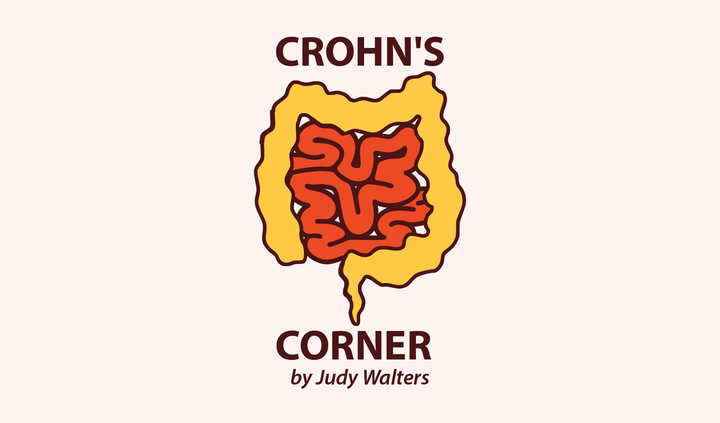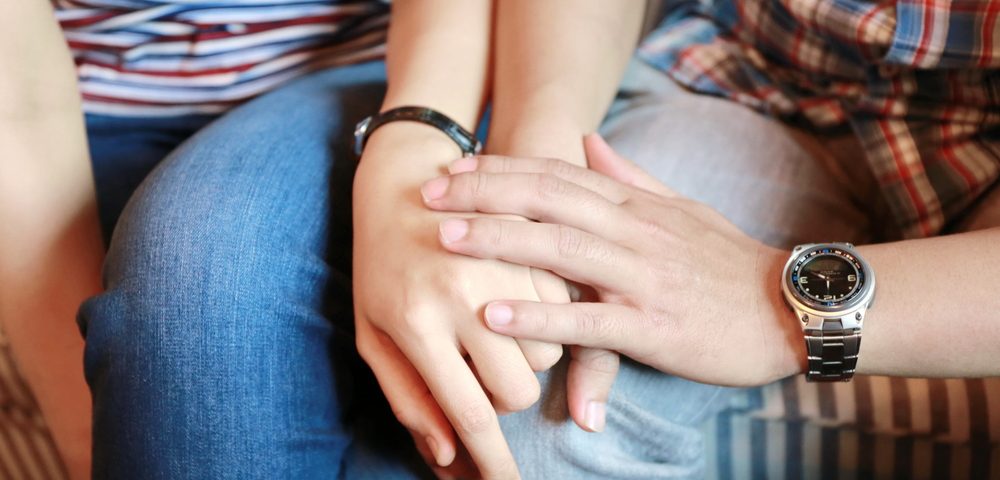
Crohn’s didn’t just happen to me. It happened to my family, too (though, they may not have realized it at the time). I know I certainly didn’t.
It took a period of years for me to understand how my illness affected my husband and kids. I probably still don’t fully get it, though I try. In last week’s column, where I discussed taking care of my husband after his cataract surgery, helped to remind me how hard being a caretaker can be. I was happy to take care of him, and relieved, in some way, to be able to do it. It made me feel less guilty about being the one who always needs to be taken care of.
It’s hard work to be the caretaker. I’m able to see how much my husband has sacrificed to be the one who brings me to colonoscopies and endoscopies, and drives me into a city I’m not that comfortable in every eight weeks for my doctors’ appointments. When I’m bedridden, sometimes he has to drag himself up and down the steps bringing me cold drinks with lots of ice, or my medications. Or he has to stop at the pharmacy to pick up another medicine we’re going to try. It has deeply affected his life.
My daughters, too, have been affected. It’s hard to watch Mommy lying on the bed in pain, being uncomfortable or taking medications that make her sleepy, and out of the loop. It’s hard for Mommy to sometimes miss things that are important to you. But last week I had a real eye-opening moment at how my illness has affected those around me.
We had been at a family dinner. My daughter had been sitting next to me, and my father across from us. My father and I were having a lively discussion about current politics. I mentioned that I had gone to an event to hear a local politician speak. Right away, I disliked her approach to government. After I heard her speak, I asked a question and got an answer that felt way off the mark to me. “If I were physically well enough,” I said to my father, “I would run against her in the next election.”
At the time, my words didn’t sound like a problem. But just a week later, I was talking to my daughter, and she started to cry. “I felt so sad for you when you said you weren’t well enough to do something you wanted to do.” She begged me to think about it. I wasn’t not well enough, she said. I was fine. I could do it if I really wanted.
It was hopeful thinking on her part. She has spent some of her childhood with a mother who was unable to get out of bed, even if she really wanted to. She has grown up with a mother who had to miss a lot of life in order to try to bet better. But, even though she is now a college student, there is that part of her, that child part, who wants Mommy to be alright.
That’s how Crohn’s has affected her. And that’s something I can never make peace with.
***
Note: IBD News Today is strictly a news and information website about the disease. It does not provide medical advice, diagnosis, or treatment. This content is not intended to be a substitute for professional medical advice, diagnosis, or treatment. Always seek the advice of your physician or other qualified health provider with any questions you may have regarding a medical condition. Never disregard professional medical advice or delay in seeking it because of something you have read on this website. The opinions expressed in this column are not those of IBD News Today, or its parent company, BioNews Services, and are intended to spark discussion about issues pertaining to IBD.

